Description
Tretinoin is a topical medication that belongs to a class of drugs called retinoids. It is commonly used to treat acne, reduce the appearance of fine lines and wrinkles, and improve the overall appearance of the skin. Tretinoin cream is available by prescription only and is applied directly to the skin.
The effectiveness of tretinoin cream is due to its ability to increase skin cell turnover, unclog pores, and reduce inflammation. It works by increasing the rate at which skin cells are replaced, which helps to clear up acne and reduce the appearance of fine lines and wrinkles.
When using tretinoin cream, it is essential to follow your doctor’s instructions and apply the medication as directed. Typically, tretinoin cream should be applied in a thin layer to the affected areas of the skin once daily at bedtime. It is essential to avoid applying the cream to the eyes, mouth, or other sensitive areas.
Some common side effects of tretinoin cream include redness, peeling, and irritation of the skin. These side effects are usually mild and should subside as your skin adjusts to the medication. However, if you experience severe irritation or a rash, you should contact your doctor immediately.
It is essential to note that tretinoin cream can increase your skin’s sensitivity to sunlight, so it is vital to use sunscreen and avoid prolonged sun exposure while using this medication. Additionally, tretinoin cream should be used with caution during pregnancy and while breastfeeding, as the safety of topical retinoids during these times has not been established.
Overall, tretinoin cream can be an effective treatment for acne, fine lines, and wrinkles, but it is essential to use it as directed by your doctor and be aware of the potential side effects and precautions associated with its use.
BENEFITS:
Tretinoin cream has several benefits for the skin, including:
- Acne treatment: Tretinoin cream is an effective treatment for acne because it increases skin cell turnover, unclogs pores, and reduces inflammation. This helps to prevent the formation of new acne lesions and can clear up existing ones.
- Anti-aging effects: Tretinoin cream can help reduce the appearance of fine lines and wrinkles by increasing skin cell turnover, stimulating collagen production, and improving skin texture. This can lead to a more youthful and refreshed appearance.
- Improved skin tone and texture: By increasing cell turnover, tretinoin cream can help even out skin tone and improve overall skin texture. This can lead to smoother, more radiant-looking skin.
- Reduced hyperpigmentation: Tretinoin cream can help reduce the appearance of dark spots and hyperpigmentation by increasing cell turnover and promoting the shedding of pigmented cells.
- Prevention of skin cancer: Some studies suggest that using topical retinoids like tretinoin cream may help reduce the risk of developing certain types of skin cancer, such as basal cell carcinoma and squamous cell carcinoma.
Remember that using tretinoin cream should always be done under the guidance and supervision of a healthcare professional, as individual results may vary, and there are potential side effects and precautions to consider.
SIDE EFFECTS:
Tretinoin cream may cause several side effects, including:
- Skin irritation: Tretinoin cream can cause redness, dryness, scaling, and peeling of the skin. This is usually mild and should subside as your skin adjusts to the medication.
- Sun sensitivity: Tretinoin cream can increase your skin’s sensitivity to sunlight, making it more susceptible to sunburn and other sun-related damage. It is essential to use sunscreen and avoid prolonged sun exposure while using this medication.
- Pregnancy complications: Tretinoin cream should be used with caution during pregnancy and while breastfeeding, as there may be potential risks to the developing fetus. Consult your doctor before using tretinoin cream if you are pregnant or breastfeeding.
- Allergic reactions: Some people may experience an allergic reaction to tretinoin cream, which can include symptoms such as itching, swelling, and difficulty breathing. If you experience these or any other severe side effects, seek medical attention immediately.
- Eye irritation: Tretinoin cream should not be applied near the eyes, as it can cause irritation, redness, and swelling. If tretinoin cream comes into contact with your eyes, rinse them thoroughly with water.
It is essential to follow your doctor’s instructions when using tretinoin cream and to report any side effects or concerns promptly. Your doctor may adjust the dosage or recommend an alternative treatment if necessary.
PRECAUTIONS:
When using tretinoin cream, it is essential to take the following precautions:
- Consult your doctor: Before starting tretinoin cream, inform your doctor about your medical history, including any allergies, skin conditions, or pregnancy status. They will determine if tretinoin cream is safe and appropriate for you to use.
- Use sunscreen: Tretinoin cream can increase your skin’s sensitivity to sunlight, making it more susceptible to sunburn and other sun-related damage. Apply a broad-spectrum sunscreen with an SPF of 30 or higher every day, even on cloudy days, and avoid prolonged sun exposure.
- Limit other topical treatments: Using other topical treatments, such as benzoyl peroxide or salicylic acid, along with tretinoin cream can increase the risk of skin irritation. Consult your doctor or pharmacist before combining tretinoin cream with other topical medications.
- Avoid waxing: Tretinoin cream can make your skin more sensitive and prone to injury. Avoid waxing or other procedures that can cause skin irritation while using tretinoin cream.
- Use as directed: Follow your doctor’s instructions for using tretinoin cream, including the frequency of application and the amount of cream to apply. Do not use more than the recommended amount, as this can increase the risk of side effects.
- Avoid contact with eyes, mouth, and mucous membranes: Tretinoin cream should not be applied near the eyes, mouth, or mucous membranes. If the cream comes into contact with these areas, rinse thoroughly with water.
- Store properly: Keep tretinoin cream in a cool, dry place away from direct sunlight and heat. Do not freeze or refrigerate the cream.
- Dispose safely: Dispose of unused or expired tretinoin cream according to your doctor’s instructions or local waste disposal guidelines. Do not flush it down the toilet or pour it down the drain.
- Monitor your skin: Keep an eye on your skin while using tretinoin cream and report any side effects or concerns to your doctor. They may adjust the dosage or recommend an alternative treatment if necessary.
- Be patient: Tretinoin cream may take several weeks or months to show noticeable results, so be patient and continue using the cream as directed. Do not stop using the cream without consulting your doctor, as this can lead to a recurrence of acne or other skin issues.

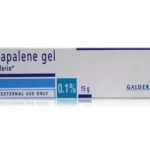
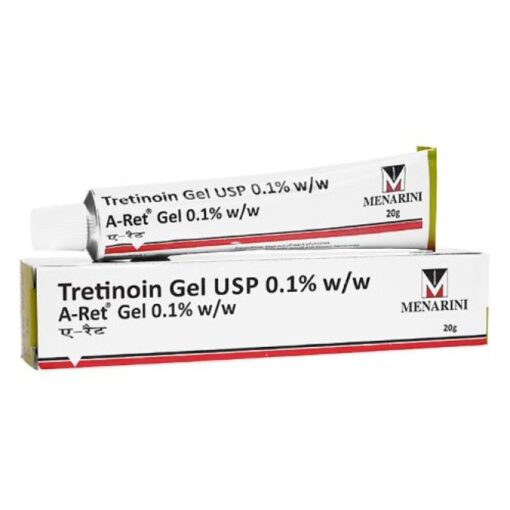
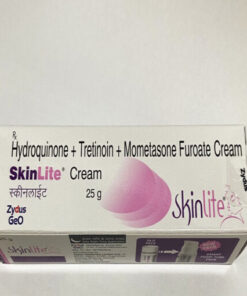
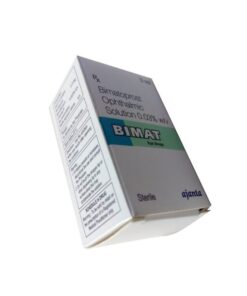
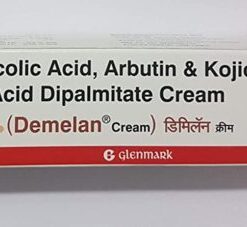
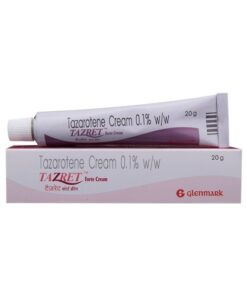
28 reviews for A Ret Gel 0.1% (Tretinoin gel) (20gm)